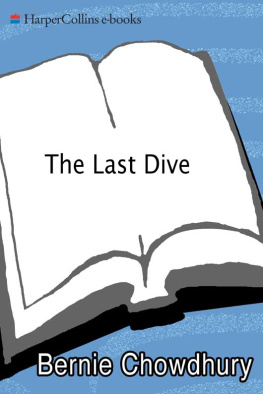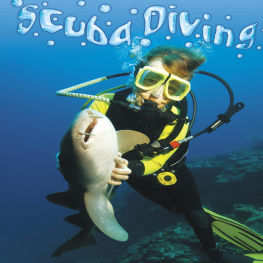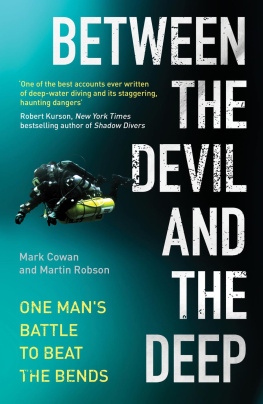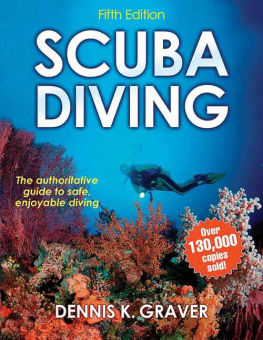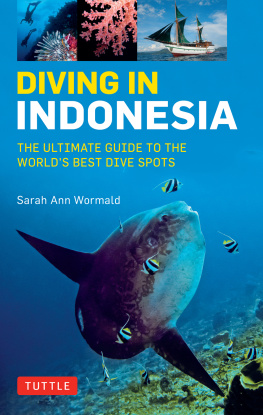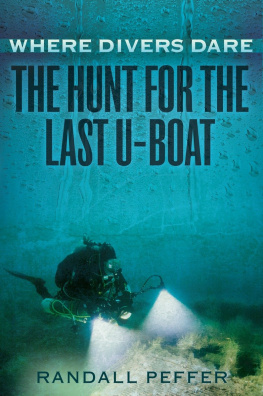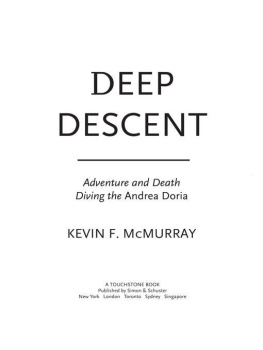O N M AY 7, 2001, seven months after the hardcover edition of this book was released, Steve Bermans lifeless body was found at a depth of 109 feet, in the Devils Cave System, Florida. Steve had accumulated over 1,500 of his 10,000-plus dives at this site, where he had taught hundreds of people about the art of cave diving. He had been working for at least ten years creating a map of the extensive system; on his last dive he conducted a solo survey of the far reaching parts of the twisting tunnel complex, the data dutifully etched in pencil marks on a white plastic slate attached to his person. He was found in perfect form, Im told. His left thumb and forefinger formed an OK sign around the thin, white nylon guideline leading out of the cave, his light held securely in his right hand, his body facing toward a diver propulsion vehicle and a supplemental supply of breathing gas, both of which he had deposited during his inbound journey. The life-sustaining gas was only 150 feet away, and the caves exit 3,350 feet beyond.
There was no evidence that his diving gear was in disarray, no crumbled limestone rock wedged between his two back-mounted steel tanks, no hand or fin marks in the gravel, clay, and sand littering the caves bottom: nothing to betray entanglement, entrapment, or panic of any kind. Not even a sign of the body convulsing from drowning. Steves eyes were closed, his breathing regulator still in his mouth. There was no gas in either of his large gray scuba tanks. The diver who recovered hima registered nurseremarked that it looked as though Steve had become incapacitated, passed out, and expired. One might imagine that Bermans death was oddly peaceful, like a sleeping man whose heart suddenly stops. The coroners report lends some credence to this fantasy: Steve was found to have a heart block-ageoften referred to as the widow maker. Although Steves cause of death was officially listed as drowning, it is likely that he was incapacitated by a heart event, which could just as well have happened to him on land.
Rest in peace, my friend.
When I think of so many of my friends, like Chris and Chrissy Rouse, and other fellow divers who died while diving, I wish this were a book that never had to be written. It was in 1998, almost six years after the Rouses deaths, that I started writing the proposal for this book. I thought the passage of time would make it far easier, from an emotional standpoint, to write about their experiences as well as my own. I was wrong. Through the many interviews and review of various documents related to Chriss and Chrissys deaths, I have relived their accident and the trauma to all of those who knew them countless times.
Although this has been a difficult book to write, I still feel as I did so many years ago when I was new to diving that divers and their world are fascinating; I am privileged to know many divers around the world, including many who are or have been on the cutting edge of the sport. My sole regret is that I have been able to include only some of these many outstanding divers and parts of their stories in this book.
As I liked to tell my students when I was teaching, diving is a sport offering so many possibilities that you can grow with it over the years to whatever level of complexity you want to achieve. For those divers who wish to stay in relatively shallow water and enjoy the colorful warm-water reef environment, diving is a relaxing and reasonably safe sport, just as hiking through the mountains is reasonably safe. The edge of sports like divinggoing into wrecks and cavesand mountain climbingascending Mount Everest or K2will always act as a beacon for a small group of people who have the motivation to develop the skills and get the experience and equipment that are needed even to be considered for expeditions. It is at that edge that the stakes are highest and that we learn the most about ourselves, our world, and our limits, as well as how to extend those limits. There are numerous lessons to be learned at the edge by those willing to look.
I wish to thank the many people who gave so generously of their time and let me interview them, or who answered questions by correspondence. Listed alphabetically, those people are Steve Berman, Steve Bielenda, Janet Bieser, Julia Bissinger, Jim Bowden, Bob Burns, Glenn Butler, Pete Butt, John Chatterton, Sue Crane, Paul Curtin, Cathie Cush, Billy Deans, Evie Dudas, Steve Foreman, Hank Garvin, Steve Gatto, Gary Gentile, Terry German, John Griffith, Mike Gucken, Kevin Gurr, Janet Hall, M.D., Peter Hess, Karen Jensen, Ph.D., Richie Kohler, Ann Kristovich, D.D.S., Barb Lander, Leslie Leanie, Don McDevitt, Steve McDougall, Denny McLaughlin, Michael Menduno, John Moyer, Kevin OBrien, John Reekie, Ken Reinhart, Stephanie Schwabe, Ph.D., Tim Stumpf, Lisa Teklits, John Thornton, and Denny Willis.
In addition, I would like to thank several people who spoke with me casually about incidents related to the book and whose recollections helped fill in gaps in either the story or my technical knowledge. They are Dennis Anacker, Jim Baden, John Harding, Howard Klein, Wings Stocks, and Joe Zero Terzuoli. Several people also reviewed parts of the manuscript related to themselves and their areas of expertise, and I would like to give them a special thanks for their time and their valuable suggestions. They are Mike Emmerman, Bill Hamilton, Ph.D., and Karl Huggins. Jennifer Hunt, Ph.D., read most of the manuscript, including several revisions, and I am grateful for her suggestions, support over the years, and behavioral and psychological insights. I would also like to thank Graciella Ramos for her insights.
I would especially like to thank Sue Rouse, without whose support this book would not have been possible.
I have learned a great deal about the craft of writing and publishing, for which I would like to thank Jenny McPhee, my favorite instructor at the Gotham Writers Workshop in Manhattan, and Bob Sterner, my copublisher of immersed magazine. Besides Bob, I also thank my other business partners in immersed magazine, Tom Easop, Mark Haas, Kevin OBrien, and Harry White, for their support of the vision I approached them with many years ago, and for the insights into business and publishing that they have shared with me.
Elaine Goodman did a fast and excellent job transcribing the many interview tapes I burdened her with, and I would like to thank her for her efforts.
I would like to thank my neighbor Lloyd Butch Ward, who read my work in progress and gave me valuable feedback.
Many thanks to editor David Groff, for helping me adjust to a new writing style, as well as for his enthusiasm, excellent edits, and suggestions for improving the manuscript.
To my editor at HarperCollins, Trena Keating, my heartfelt thanks for believing in this story and in my ability to present it, as well as for all of her support, edits, and invaluable suggestions for improving this book.
This volume might not have happened without the efforts of my devoted agent, Andrew Stuart of Literary Group International, who went above and beyond the call of duty to make it a reality. His sharp editorial eye, enthusiasm, and support were essential to this project.
Special thanks to my parents, Benoy Chowdhury, Ph.D., and Lilli Chowdhury, for giving me so many unique and valuable life experiences, and for the curiosity about the world that those experiences ignited. I would especially like to thank my mother for teaching me German and giving me the gift of entre into another culture that a language provides. I thank my departed grandmother Lizzi Krger for her unconditional love and the many memorable times we shared, as well as for her gift of snorkeling equipment when I was a child.
I remain indebted to the dedicated professionals of the U.S. Coast Guard, and in particular those who took part in the helicopter evacuation after my accident in 1991, for their efforts. I would also like to thank Dennis Anacker, Dan Crowell, Dave Dannenburg, John Harding, Dr. Ignaccio Mendagurin, the late Captain Bill Nagel, Kevin OBrien, Peter Thompson, and the doctor who treated me in the recompression chamber for their efforts on my behalf.

